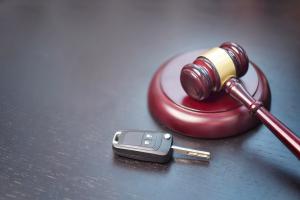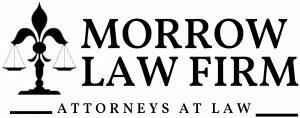
Handling Legal Disputes Over Fault in Louisiana Car Accidents: Mediation vs. Litigation
John Michael Morrow, Jr., a lawyer at Morrow Law Firm in Opelousas, Louisiana, shares insights into the use of mediation and litigation to resolve legal disputes related to car accidents. The firm, led by William P. Morrow, John Michael Morrow, Jr., and Stephen M. Morrow, often handles cases where fault is contested, offering a perspective on the benefits and limitations of each resolution method.
Mediation: A Collaborative Approach
Mediation is a form of alternative dispute resolution that encourages parties to negotiate and settle their differences outside of court. In the context of car accidents, mediation can be an effective way to reach a mutually agreeable resolution without the time and expense associated with a full trial. The process involves a neutral third party, known as a mediator, who facilitates discussions between the parties in an effort to resolve the conflict.
John Michael Morrow, Jr. notes, "One of the key benefits of mediation is its collaborative nature. It allows both sides to present their perspectives and work toward a compromise. Mediation can be particularly useful in cases where both parties share some degree of fault or where the damages are disputed. The goal is to avoid the adversarial setting of a courtroom and instead reach a settlement that satisfies all involved parties."
Mediation offers several advantages in the resolution of car accident claims. First, it is generally faster than litigation, allowing parties to resolve disputes in a matter of weeks or months rather than years. Additionally, mediation is less formal than court proceedings, which can reduce stress for the individuals involved. The costs associated with mediation are often lower than those of litigation, as there are no lengthy trials or court fees. Finally, mediation allows both parties to have more control over the outcome, as they are directly involved in crafting the settlement.
However, mediation is not without its limitations. It requires both parties to participate in good faith and be willing to compromise. If either party is unwilling to negotiate or believes that the other side is not being reasonable, mediation may not result in a settlement. In such cases, the dispute may proceed to litigation.
Litigation: The Traditional Court Process
Litigation, on the other hand, is the traditional method of resolving legal disputes, involving a formal court process where each party presents evidence and arguments before a judge or jury. Litigation is often seen as a last resort when mediation or settlement negotiations fail, or when one party is unwilling to compromise. In car accident cases, litigation may be necessary when fault is strongly contested or when the damages involved are significant.
One of the primary benefits of litigation is that it provides a structured and formal setting for resolving disputes. In litigation, both sides have the opportunity to present their case in full, including testimony from witnesses, expert opinions, and physical evidence. The judge or jury then determines fault and awards damages based on the evidence presented.
Litigation can also be a necessary option in cases where the parties are unable to agree on the facts of the accident or where insurance companies refuse to offer a fair settlement. In these situations, litigation provides a way for the injured party to seek the compensation they believe they are owed.
Despite these benefits, litigation can be a lengthy and costly process. Car accident cases that go to trial can take months or even years to resolve, with both sides incurring significant legal fees. The formal nature of litigation also means that the parties involved have less control over the outcome, as the final decision is left in the hands of a judge or jury. Additionally, the adversarial nature of litigation can make the process more stressful and emotionally taxing for those involved.
Choosing Between Mediation and Litigation
Deciding whether to pursue mediation or litigation in a car accident dispute depends on a variety of factors, including the complexity of the case, the willingness of both parties to negotiate, and the amount of compensation being sought. In cases where the facts are clear and both parties are open to compromise, mediation can be an effective and efficient way to resolve the dispute. It allows the parties to avoid the cost and time commitment associated with a trial and can lead to a faster resolution.
On the other hand, if there are significant disagreements over fault or if one party refuses to negotiate in good faith, litigation may be the better option. Litigation provides a more formal and structured process for resolving disputes, with the court ensuring that all evidence is presented and evaluated fairly. In cases involving severe injuries or large financial claims, litigation may be necessary to ensure that the injured party receives full compensation for their damages.
It is also important to note that not all cases are suitable for mediation. For example, in situations where one party denies liability entirely or where the injuries are catastrophic, a court trial may be the only way to achieve a fair outcome. Similarly, cases involving complex legal issues or disputes over insurance coverage may require the thorough examination of evidence that only litigation can provide.
Conclusion
Mediation and litigation both offer distinct pathways for resolving car accident disputes in Louisiana. While mediation provides a collaborative and less adversarial approach, litigation offers a formal process for cases where fault is heavily disputed or where settlement negotiations have failed. Deciding which method is most appropriate for a particular case requires careful consideration of the facts, the willingness of the parties to negotiate, and the potential costs and benefits of each approach.
For those involved in car accident disputes, understanding the differences between mediation and litigation is crucial for choosing the most effective way to resolve their claims. Both methods play a vital role in ensuring that individuals receive fair compensation and that disputes are handled efficiently and justly.
Morgan Thomas
Rhino Digital, LLC
+1 504-875-5036
email us here
Visit us on social media:
Facebook
Distribution channels: Culture, Society & Lifestyle, Insurance Industry, Law
Legal Disclaimer:
EIN Presswire provides this news content "as is" without warranty of any kind. We do not accept any responsibility or liability for the accuracy, content, images, videos, licenses, completeness, legality, or reliability of the information contained in this article. If you have any complaints or copyright issues related to this article, kindly contact the author above.
Submit your press release

